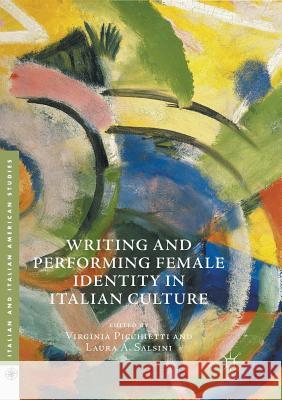Writing and Performing Female Identity in Italian Culture » książka
topmenu
Writing and Performing Female Identity in Italian Culture
ISBN-13: 9783319821979 / Angielski / Miękka / 2018 / 278 str.
Kategorie:
Kategorie BISAC:
Wydawca:
Palgrave MacMillan
Seria wydawnicza:
Język:
Angielski
ISBN-13:
9783319821979
Rok wydania:
2018
Wydanie:
Softcover Repri
Ilość stron:
278
Waga:
0.35 kg
Wymiary:
21.01 x 14.81 x 1.57
Oprawa:
Miękka
Wolumenów:
01
Dodatkowe informacje:
Wydanie ilustrowane











